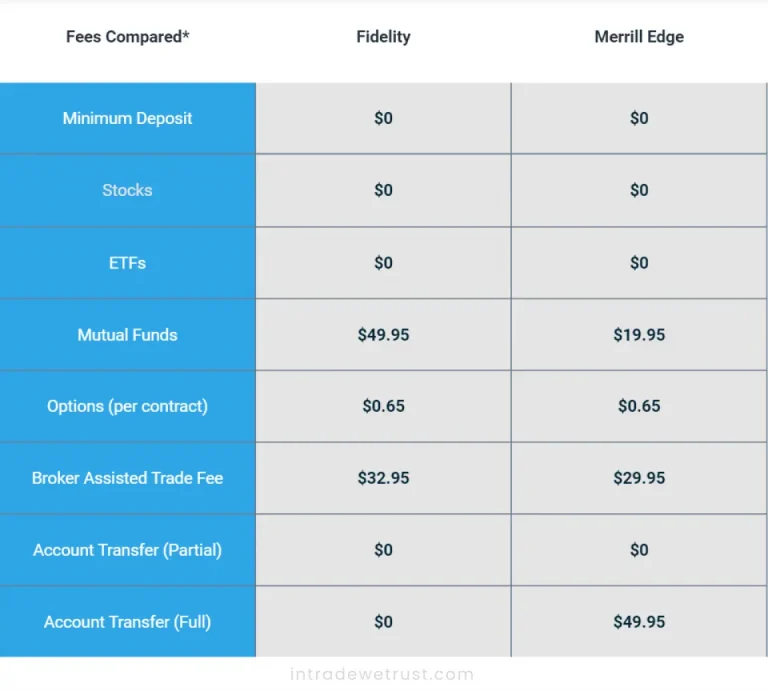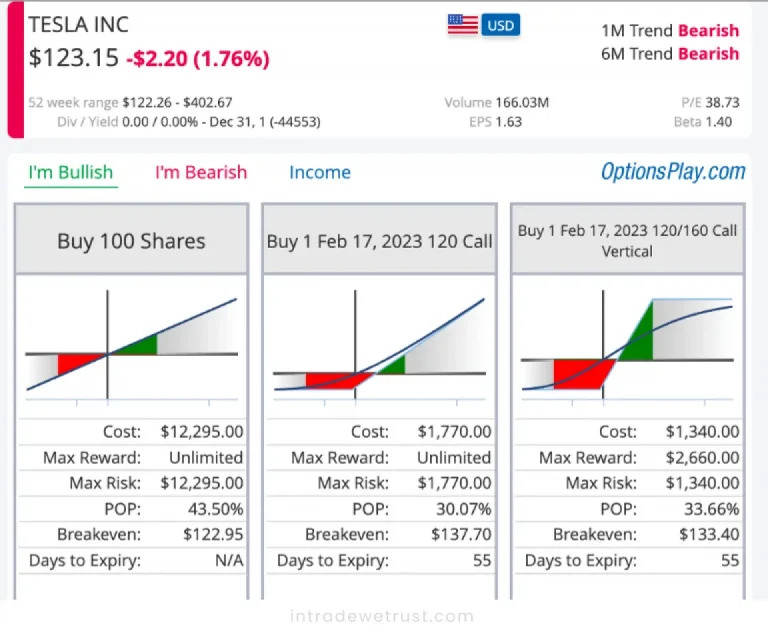Broker reviews > Compare > Merrill Edge vs Fidelity vs TechBerry
In the bustling world of online stock market investments, making the right choice for a brokerage account becomes a pivotal decision. Merrill Edge and Fidelity have long dominated the scene with their competitive offerings, but the emergence of TechBerry brings a fresh twist to the narrative. This analysis aims to dissect their services, from pricing and research capabilities to trading platforms, helping investors navigate through the complexities of Merrill Edge vs. Fidelity, and see where TechBerry fits in this competitive landscape.

A Closer Look at Costs and Investment Options
When we dive into trading costs and mutual fund investments, Merrill Edge and Fidelity both offer appealing commission structures that cater to cost-conscious investors. Fidelity edges ahead with its selection of free index funds, offering a boon for long-term investors looking to minimize expenses. On the other side, TechBerry introduces a paradigm shift with its focus on cryptocurrencies, alongside traditional forex trading, backed by an AI-driven platform. This unique blend of services widens the investment horizon, setting TechBerry apart as a versatile choice for those eyeing the expansive world of digital currencies.
| Feature | TechBerry | Merrill Edge | Fidelity |
|---|---|---|---|
| Commission Fees | $0 for stocks, ETFs, and options | $0 for stocks, ETFs, and options | $0 for U.S. stocks and ETFs |
| Account Minimums | $500 | $500 | $1000 |
| Investment Options | Forex market, automated AI-driven trading | Stocks, ETFs, mutual funds, bonds | Stocks, ETFs, mutual funds, options, cryptocurrency, bonds, CDs, international investments |
| International Trading | Forex trading with AI analysis | Limited to US markets | Charges vary by country; high fees for non-US stocks |
| Trading Platforms | Automated social trading platform | User-friendly mobile and desktop platforms | Active Trader Pro, web, mobile app |
| Research and Tools | AI-driven algorithms, social trading features | Good research tools, limited customizability | Extensive research from third-party firms; detailed investment research on over 4,500 stocks |
| Customer Service | 24/7 customer support via live chat, email, and callback form | Limited customer support | Highly rated, various contact options |
| Margin Trading | Available; rates vary | Available; rates vary | Available; rates vary |
| Educational Resources | Extensive resources including articles | Limited educational materials | Comprehensive educational materials |
| Promotions and Bonuses | Not specified | Not specified | No current promotions (2024) |
| Mobile App Features | Not specified | User-friendly with two-step login | Advanced features, real-time quotes |
| Fractional Shares | Not applicable | Not specified | Yes, investments as low as $1 |
| Robo-Advisor Services | Automated trading via AI | Not available | Fidelity Go, competitive rates |
| Account Types | Not clearly specified | Various types including individual, joint, and retirement accounts | Wide range including IRA, 401(k), brokerage, HSA |
| Safety and Insurance | Implements 2FA and KYC process for security | Regulated by top-tier financial authorities | High level of security; FDIC-insured options available |
Platforms and Accessibility – Where Everyone Starts
Both Fidelity and Merrill Edge break down barriers for newcomers with their no-minimum account policies, while their trading platforms cater to a spectrum of investors’ needs. Fidelity’s intuitive interface and the Active Trader Pro platform offer a balanced mix of simplicity and sophistication. Merrill Edge’s MarketPro, though potent with analytical tools, might fall short for those seeking the cutting edge in trading tech. Here, TechBerry makes a significant leap, promising an integration of cutting-edge AI technologies for a trading experience that’s both advanced and user-friendly, appealing to the tech-savvy investor.

Going Global – Trading Beyond Borders
Fidelity shines in offering its clients the capability for international trading, a feature Merrill Edge doesn’t directly compete with. Meanwhile, TechBerry’s approach to penny stocks and its AI-driven insights place it a notch above in catering to niche markets. Fidelity is renowned for its top-notch research, a critical asset for any investor. However, Merrill Edge holds its ground with valuable insights derived from its association with Bank of America. This section highlights the unique strengths each platform brings to international trading and research, underscoring the importance of robust information in making informed investment decisions.

Choosing Your Digital Trading Partner
In wrapping up, we see that while Merrill Edge and Fidelity provide solid, time-tested offerings, TechBerry carves out its niche with a forward-thinking approach, particularly appealing to those who prioritize technological innovation in their investment strategy. Whether it’s Merrill Edge’s comprehensive research, Fidelity’s extensive product range and low-cost funds, or TechBerry’s pioneering AI-driven platform, each broker presents a unique set of features designed to meet various investor needs. Ultimately, the choice hinges on what you value most in your trading journey – be it cost efficiency, technological advancement, or access to global markets.

The comparison of Merrill Edge, Fidelity, and Techberry offers valuable insights for investors and traders. When examining user experiences, it’s important to consider both positive and negative reviews to make an informed decision. One user, M.G., shared their experience on May 14, 2024, stating, “Hello everybody. A month ago, I switched to the VIP membership plan and I’m going to visit the 2024 Annual Global Exclusive Event for VIP members. I’ll share the details when I return. I just wanted to share this information with all of you.” This highlights the benefits Techberry offers to its VIP members. However, it’s crucial to scrutinize various techberry reviews and investigate claims like techberry scam to determine is techberry legit. Evaluating techberry online review, techberry forex options, and techberry trading strategies can provide a comprehensive understanding. Additionally, considering techberry user experience and opinions helps in forming a well-rounded perspective on techberry for investors and traders. For those seeking thoughts on techberry, diving into techberry opinioni can be particularly insightful.

What sets Merrill Edge apart from Fidelity and TechBerry?
Which platform is most beneficial for long-term investors?
How do the fees compare across these platforms?